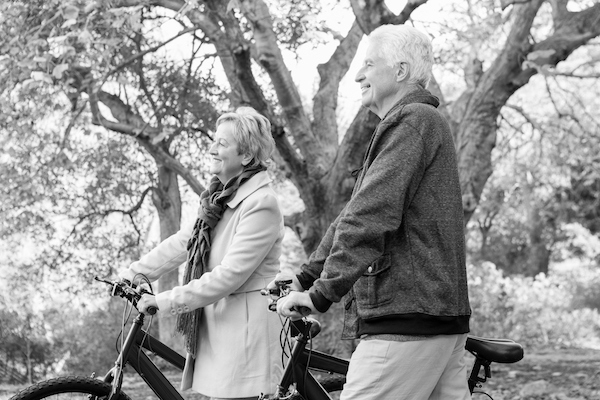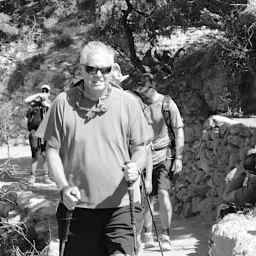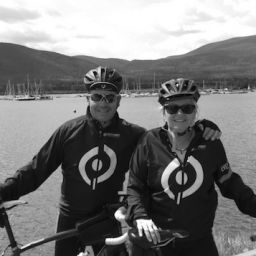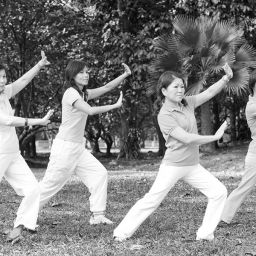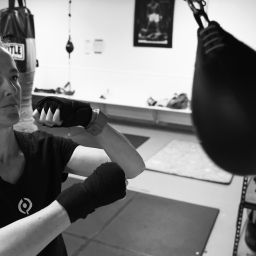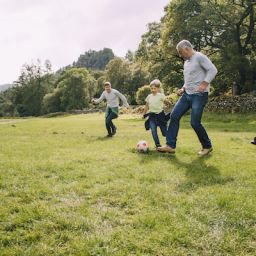The Davis Phinney Foundation, together with the Parkinson’s Foundation, is proud to announce support of a study by Dr. Miriam Rafferty, mentored by Dr. Tatyana Simuni, at Northwestern University in Chicago to explore what helps people with Parkinson’s disease stick with an exercise regimen, or what causes them to change their exercise habits.
About the Research Study
Past research has shown that people with Parkinson’s disease who do not exercise have different beliefs and attitudes compared to people who do exercise. However, these studies don’t take into account the changes that occur over time due to symptoms and lifestyle changes, such as retirement.
The purpose of this study is to determine how the community and healthcare team can improve their support for people with Parkinson’s to encourage continued exercise. The research will use “big data” to learn about changes in exercise over time.
The data comes from the Parkinson’s Outcome Project of 10,000 people with Parkinson’s and will study those people whose exercise habits have increased or decreased over the past few years. The research team will identify health characteristics to help predict when someone is at risk for stopping exercise. This information will be used to provide resources for clinicians to know when they need to intervene.
The research team will also interview people with Parkinson’s to find out more about their exercise increases and decreases. These conversations will help determine whether there were things the community did or didn’t do that could help them maintain their exercise routines and how clinicians can help to improve their experience of exercise.
The team will combine the information learned from the “big data” and interviews to create a “toolbox.” The toolbox will help people with Parkinson’s gather the right information to overcome challenges that could prevent them from exercising. The toolbox will be created collaboratively by including people with Parkinson’s, community advocacy organizations including the Davis Phinney Foundation and the Parkinson Foundation, and healthcare providers to ensure that the toolbox contains resources that can be shared and used by anyone.
About Dr. Rafferty
 Dr. Miriam Rafferty earned her Doctor of Physical Therapy degree from Washington University in St. Louis and her Board Certification in Neurologic Physical Therapy while working at the Rehabilitation Institute of Chicago (RIC), now called the Shirley Ryan AbilityLab. She has worked to develop both outpatient and inpatient rehabilitation programs for people across the stages of Parkinson’s Disease. Most recently, she started a clinical program for people with newly diagnosed Parkinson’s disease.
Dr. Miriam Rafferty earned her Doctor of Physical Therapy degree from Washington University in St. Louis and her Board Certification in Neurologic Physical Therapy while working at the Rehabilitation Institute of Chicago (RIC), now called the Shirley Ryan AbilityLab. She has worked to develop both outpatient and inpatient rehabilitation programs for people across the stages of Parkinson’s Disease. Most recently, she started a clinical program for people with newly diagnosed Parkinson’s disease.
Dr. Rafferty earned her PhD in Neuroscience from the University of Illinois at Chicago in 2015. She is currently completing postdoctoral research in Health Services and Outcomes Research at Northwestern University, where she is studying and facilitating the implementation of evidence-based exercise programs in real-world clinical settings. Her work is published in the Journal of Neurologic Physical Therapy, Physical Therapy Journal, and Journal of Parkinson’s Disease. She has been funded by the Agency for Healthcare Research and Quality, the Foundation for Physical Therapy, the Parkinson Foundation, and National Institute on Disability Independent Living and Rehabilitation Research, and now, the Davis Phinney Foundation.
Learn More about Exercise and Parkinson’s
If you want to learn more about the link between exercise and living well with Parkinson’s, much more can be found in a powerful new edition of Davis Phinney Foundation’s free Every Victory Counts® manual. The Every Victory Counts manual gives people living with Parkinson’s, their care partners and their family members the tools they need to take control of their own Parkinson’s treatment through a proactive approach to self-care.
It’s jam-packed with up-to-date information about everything Parkinson’s, plus an expanded worksheets and resources section to help you put what you’ve learned into action. Color coding and engaging graphics help guide you through the written material and point you to complementary videos, podcasts and other materials on the Every Victory Counts companion website. And, it is still free of charge thanks to the generosity of our sponsors.
Request your copy of the new Every Victory Counts manual by clicking the button below.


